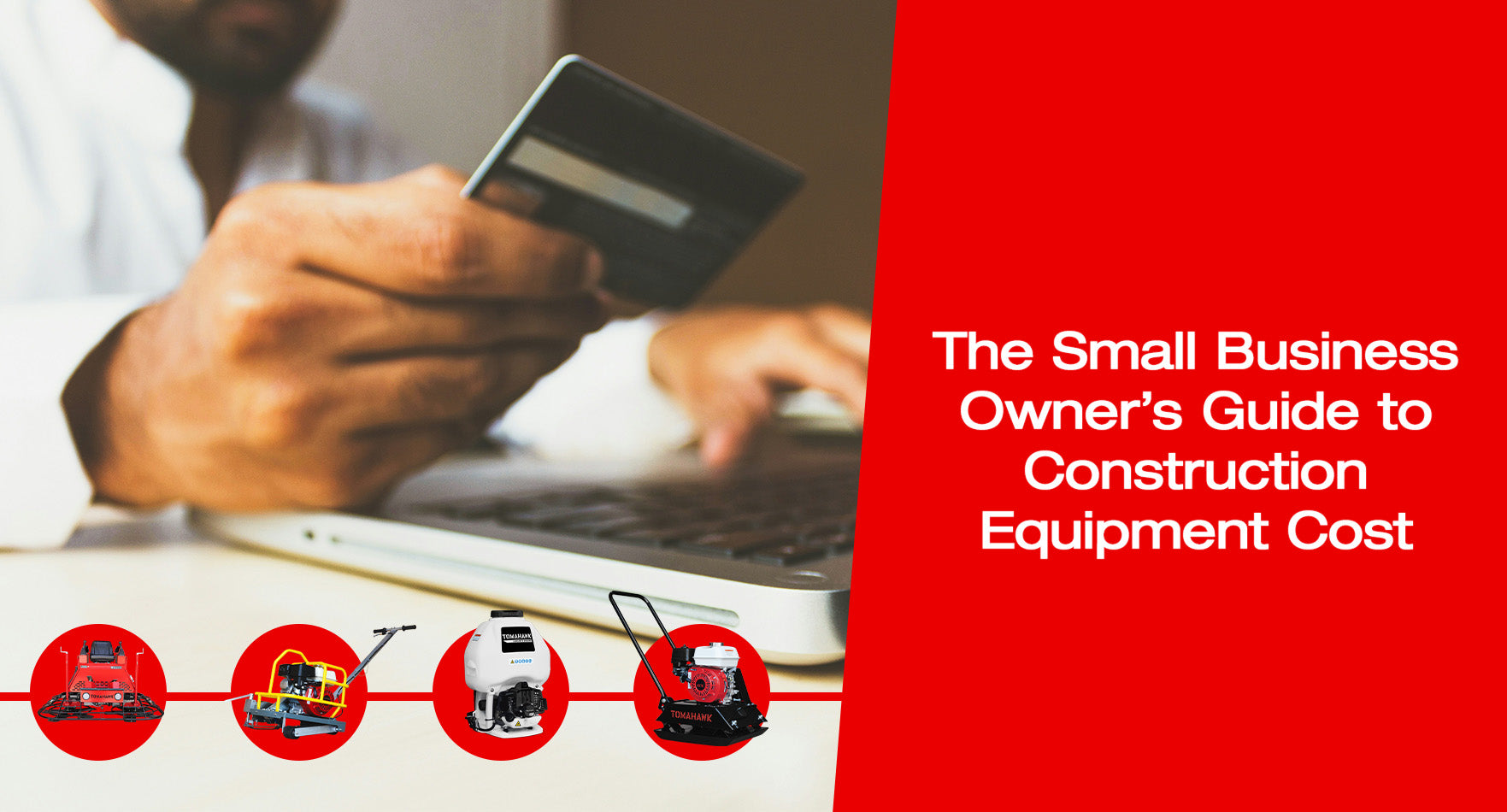For small business owners in the construction industry, managing equipment costs is a critical aspect of maintaining profitability and staying competitive. Whether you're a contractor, landscaper, or tradesperson, investing in the right construction equipment can significantly impact your bottom line. In this guide, we'll explore strategies and tips to help small business owners navigate construction equipment costs effectively and make informed decisions for their businesses.
1. Assess Your Needs: Before making any equipment purchases, it's essential to assess your business's specific needs and requirements. Consider the types of projects you typically undertake, the frequency of equipment use, and the specific tasks you need the equipment to perform. By identifying your needs upfront, you can prioritize investments and avoid unnecessary spending on equipment that won't provide a significant return on investment.
2. Determine Your Budget: Establishing a realistic budget is crucial for managing construction equipment costs effectively. Take into account factors such as purchase price, maintenance and repair expenses, financing options, and potential resale value. Consider working with a financial advisor or accountant to develop a comprehensive budget that aligns with your business goals and cash flow.
3. Explore Financing Options: For small business owners, purchasing construction equipment outright may not always be feasible. Fortunately, there are various financing options available to help spread out the cost of equipment purchases over time. Consider options such as equipment leasing, equipment loans, or equipment rental agreements, depending on your budget and cash flow needs. Compare interest rates, terms, and repayment options to find the financing solution that best suits your business.
4. Consider Used Equipment: While new construction equipment may offer the latest features and technology, it often comes with a higher price tag. For small business owners on a tight budget, purchasing used equipment can be a cost-effective alternative. Used equipment is typically available at a lower price point and can still provide reliable performance for many years. Be sure to thoroughly inspect any used equipment before purchasing and consider investing in a warranty or service contract for added peace of mind.
5. Prioritize Maintenance and Repairs: Proper maintenance and timely repairs are essential for prolonging the lifespan of your construction equipment and avoiding costly downtime. Establish a regular maintenance schedule for each piece of equipment and adhere to manufacturer guidelines for servicing and inspections. Invest in high-quality replacement parts and work with reputable service providers to ensure that repairs are performed correctly and efficiently.
6. Explore Equipment Sharing or Rental Agreements: For small business owners who don't require constant access to certain types of equipment, exploring equipment sharing or rental agreements can be a cost-effective solution. Consider partnering with other local businesses or contractors to share equipment costs and usage. Alternatively, renting equipment on an as-needed basis can help minimize upfront costs and overhead expenses, especially for infrequently used or specialized equipment.
7. Stay Informed About Tax Incentives: Small business owners may be eligible for various tax incentives and deductions related to equipment purchases and investments. Consult with a tax professional or accountant to stay informed about available tax credits, depreciation deductions, and other incentives that can help offset construction equipment costs and maximize your business's tax savings.
Navigating construction equipment costs requires careful planning, budgeting, and strategic decision-making. By assessing your business's needs, establishing a realistic budget, exploring financing options, considering used equipment, prioritizing maintenance and repairs, exploring equipment sharing or rental agreements, and staying informed about tax incentives, small business owners can effectively manage equipment costs and position their businesses for long-term success in the construction industry. With the right approach and mindset, investing in construction equipment can be a smart and rewarding decision for small business owners.










